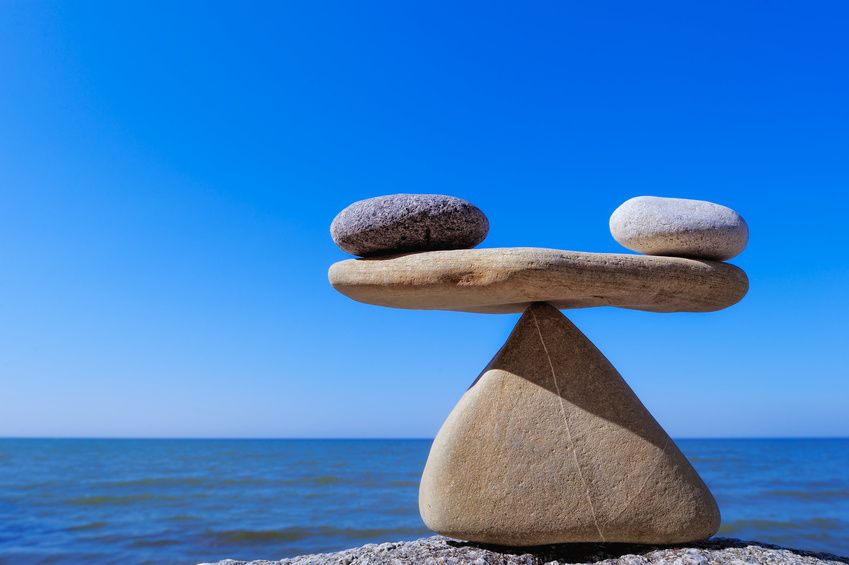
I have been inspired this last month by the growing number of people creating networks, workshops, and curricula that combine healing practices with racial identity and justice work. Recent conversations brought to mind a particular conceptual framing that has been really meaningful to me. It’s what helps me hold the spiritual conception of transcendence in balance with the need for racial identity work. What follows is an excerpt from Living in the Tension, Chapter 1, that addresses this issue:
“The terms spirit and soul are often collapsed together and used interchangeably. However, it is valuable to tease the concepts apart, explore different definitions of both, and note that one’s perspective about these concepts has psychological and behavioral ramifications. Michael Meade, author, mythologist, and storyteller, offers a helpful distinction between spirit and soul that can influence one’s relationship to issues of race.
Meade conceives of spirit as that which moves up, aspires, reaches towards the heavens, and seeks wholeness, beauty, symmetry, and transcendence. He conceives of soul, on the other hand, as that which descends into the depths, the darkness, the earth, the shadow, the mud, and the messiness of life. Spirit is uplifting, and soul is grounding. In his book, Fate and Destiny: The Two Agreements of the Soul, Meade pulls together threads from ancient tales that connect with Ageless Wisdom.1
The soul is another kind of body, a subtle body that partakes of both spirituality and physicality. As the third element in the trinity of existence, soul fills the space between spirit and matter, it grounds the spirit while animating the body and helping to refine the senses…
Soul is the connecting principle of life, the “both-and” factor, the unifying third between any opposing forces….when life becomes more polarized than it need be and things become more divided than they should be, it is the way of the soul that is missing and needed to heal the divisions and make things whole again…
For our soul instinctively knows where and how we should sink our feet into the mud of creation and grow our roots down. Spirit may seek peak experiences and the heavenly heights; but soul would have us incarnate fully and would help us to grow deep roots that allow the spirit of our life to branch out.2
Meade also discusses the differential investments of spirit and soul as he writes,
In contrast to the tendency of spirit to unify under a single idea or singular image of the divine, the soul thrives on diversity and multiplicity…
The conversation with the divine leads the soul of the seeker to an immersion in the dramas and delights of life on earth….On one hand we must know what it means to be alive in the human drama that alternates between love and loss. On the other hand there is a longing to know the divine and serve something that transcends all of that.3
In this view spirit seeks to serve the transcendent, while soul allows one to become increasingly conscious of what it means to be part of human experience. Neither spirit nor soul is more important than the other.
Unfortunately, many who look toward spirituality and healing practices in modern culture do so in a way that neglects soul. For the sake of transcending the pain and difficulty experienced within U.S. society, many people aspire to leave the physical world behind rather than take the initiatory step of engaging it more fully in order to be part of its transformation. This has tremendous implications for social justice.
It also has personal ramifications. Although there is no doubt that paying attention to race is a descent into a muddy mess, focusing on transcendence can leave one striving for the heavens without sufficient attention to the soul’s work on the ground within earthly life. Bringing transcendental aspirations into harmony with the needs of the soul by becoming fully immersed in socially-oriented issues, such as race, is valuable.
As a white person, it is important that I spend time attending to the still-evolving social world. This allows me to “recognize the complexity and weight of the current existence of white racism, to attempt to understand the ways in which [I] perpetuate racism, and to begin to think about the incredible difficulty in undoing it.”4 It might feel like drowning in the swirling waters of life, as the waters that surround this task are deep and powerful, and the initial relationship to issues of race may reflect more trauma than delight. But entering the difficulty is part of the earthly drama the soul requires.
For those who do not find value in Meade’s conception of spirit and soul, other traditions create linkages between how to awaken to a deeper level of consciousness while also attending to earthly, political life. Readers might consider their own tradition as providing these linkages. Another example might be Tolle’s language focusing on releasing ego and attachment to form. He offers the following:
Being at one with what is doesn’t mean you no longer initiate change or become incapable of taking action. But the motivation to take action comes from a deeper level, not from egoic wanting or fearing. Inner alignment with the present moment opens your consciousness and brings it into alignment with the whole, of which the present moment is an integral part.5
This suggests that becoming awakened supports the ability to swim in the swirling waters of earthly life without drowning, thus allowing for a conscious role in resolving worldly issues. Tolle describes “awakened doing” as “the alignment of your outer purpose – what you do – with your inner purpose – awakening and staying awake.”6
Tolle explains: Through awakened doing, you become one with the outgoing purpose of the universe. Consciousness flows through you into this world. It flows into your thoughts and inspires them. It flows into what you do and guides and empowers it.7
The action taken when awake, when not fueled by conditioned unconsciousness, helps to bring healing to the social world.
Engaged Buddhism also offers supportive concepts as it combines a focus on a person’s inner experience and/or psychological health with attention toward the social, economic, and political realities that play a role in the person’s experiences. Thich Nhat Hahn suggests that transformation of that which causes affliction is part of liberation.8 The idea is that “Buddhism’s original focus on personal liberation from the suffering arising from cycles of birth, old age, sickness, and death now requires a focus on social liberation.”9
With significant critique leveled at Western concepts of development, this approach counters a focus on the individual and instead suggests a focus on “dependent co-arising” which stresses “the interdependence of personal, communal, and ecological liberation. Here the fulfillment of one’s own true nature entails a turning away from seeing a separate ‘me’ and ‘mine’ and turning to the realization of the potential of others.”10 This is reminiscent of the meaning of sawubona, a Zulu word. It means we see you, your fate, and your destiny, and we obligate ourselves to be partners in that process. In this view, disregarding others through inattention and inaction diminishes the shared world.”
The chapter goes on to talk about other issues that help keep us engaged. The reason I highlighted this framing of spirit and soul at this time is that our political climate is so destructive that we need to stay consciously attentive to both. If we can’t find inspiration (of the spirit), we will fall into despair. And if we can’t stay grounded and present to what this time calls us each to do (soul work), we will sink further into the mud of the moment.
References:
1. Corinne McLaughlin and Gordon Davidson. Spiritual Politics: Changing the World from the Inside Out. (New York: Ballantine Books, 1994), 204.
2. Michael Meade. Fate and Destiny: The Two Agreements of the Soul (Seattle: Greenfire Press, 2012), 118-120.
3. Meade, Fate and Destiny, 172.
4. Yancy, Look, a White!, 158.
5. Tolle, A New Earth, 275.
6. Tolle, A New Earth, 294.
7. Tolle, A New Earth, 294.
8. Watkins and Shulman, Toward Psychologies of Liberation, 37.
9. Watkins and Shulman, Toward Psychologies of Liberation, 37.
10. Watkins and Shulman, Toward Psychologies of Liberation, 38.



